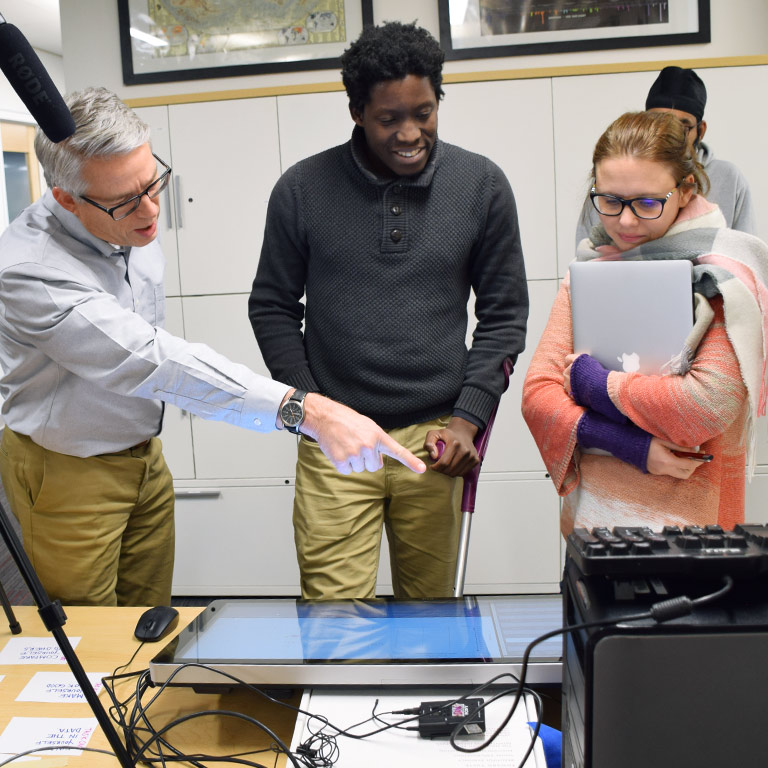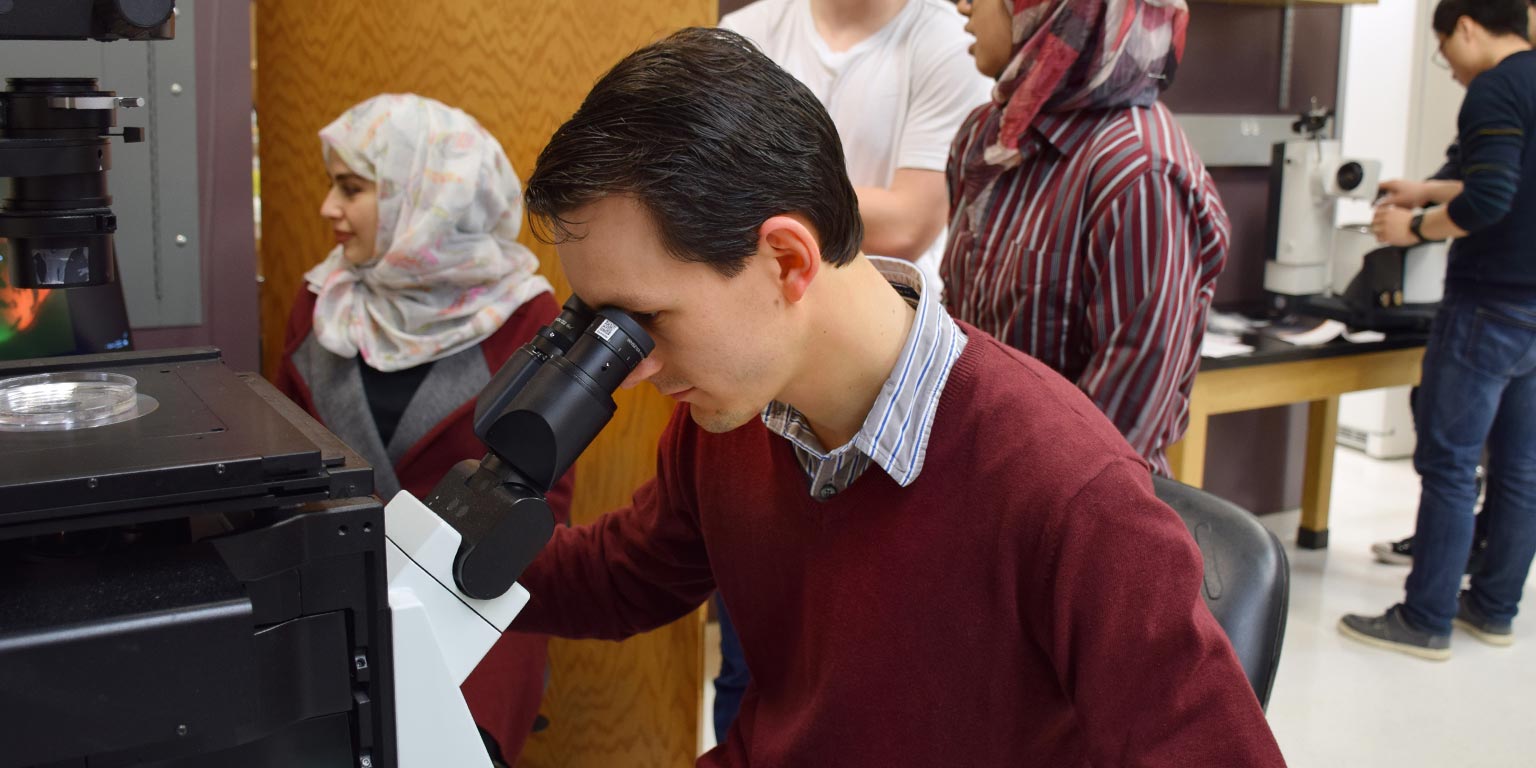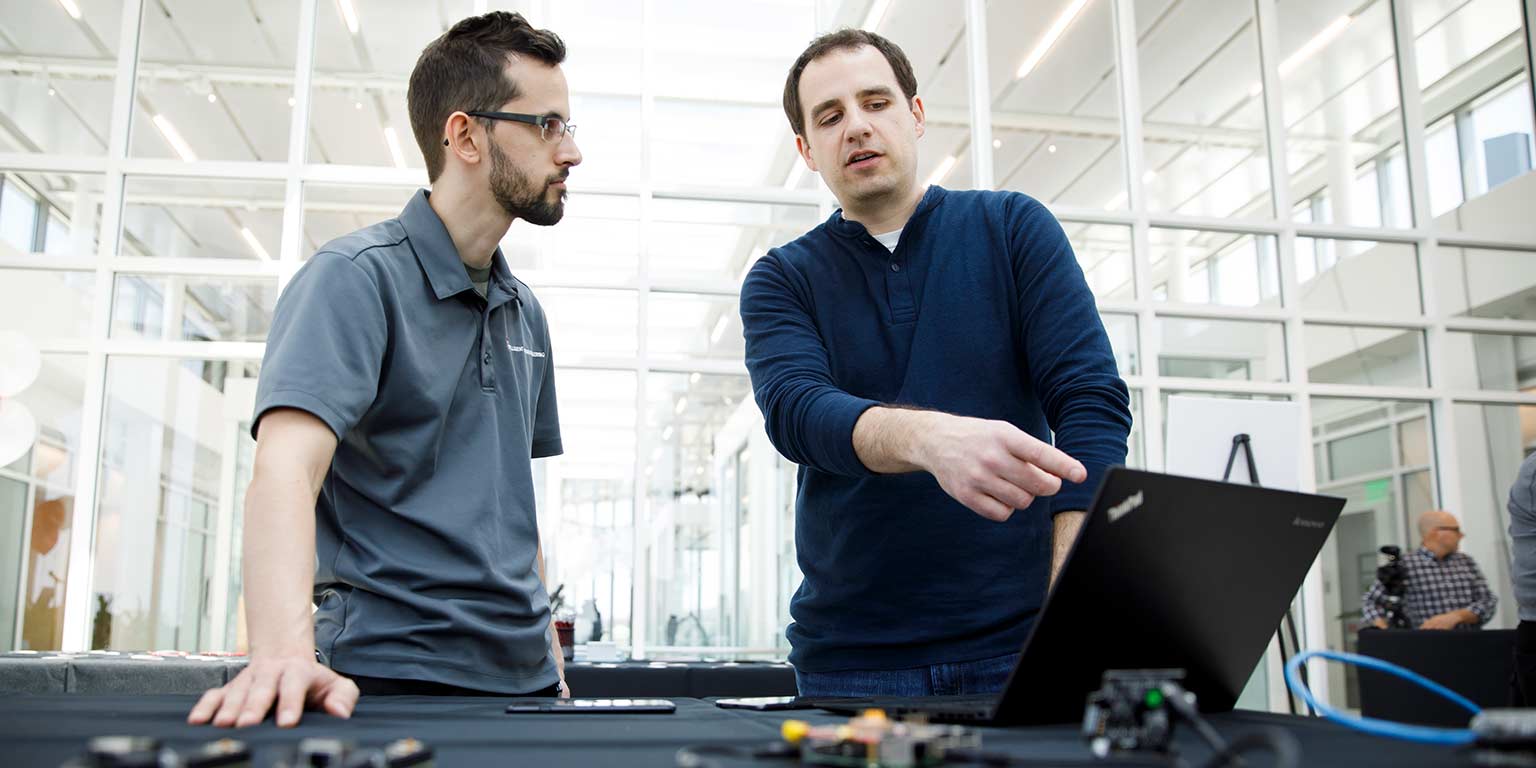Intelligent systems are revolutionizing engineering. In our Ph.D. in Intelligent Systems Engineering (ISE) program, you will learn to use artificial intelligence, embedded computing components, and sophisticated data interpretation in preparation for a career in industry, government research labs, or academia.
Our future-focused program emphasizes:
- Hands-on designing, building, and simulating of systems
- Smaller-scale, often mobile, often personal/consumer technologies and devices
- Modern information technology approaches including big data, computational modeling, and user interface design
- Use of the vast technological resources at Indiana University, a top research university





